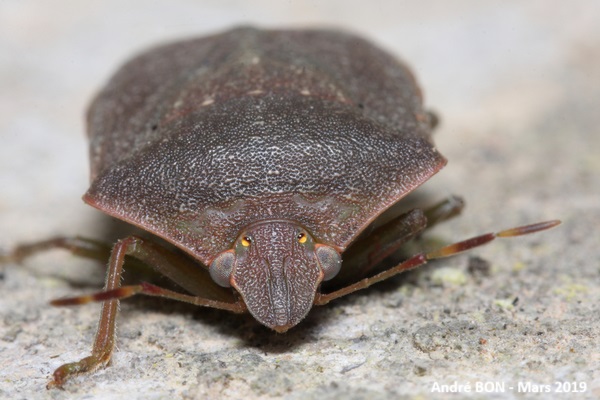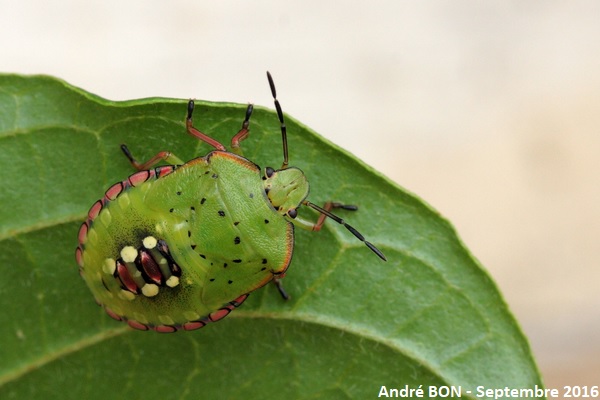

| Southern Green Shield Bug (Nezara viridula (Linnaeus, 1758)) |


|
|
Scientific name: Nezara viridula (Linnaeus, 1758) Common name: Southern Green Shield Bug French name: Punaise verte ponctuée Order: Heteroptera Family: Pentatomidae Wingspan : 11.5 à 18 mm. Females are larger than males. Biotope: Various habitats. These shield bugs are polyphagous and can cause important damages to many cultivated plants. Geographic area: Between the 45th parallels north and south on all continents. The range limit is due to winter cold and therefore may shift with global warming. Observation period : All year round. In the hottest regions there may be 5 annual generations. Adults turn to brown in autumn in temperate regions. Those that survived the winter cold turn back to green again in spring and mate immediately. |
Nezara viridula is a large shield bug which is green in summer but which turn to brown in autumn. It can be recognized by the lack of a yellow spot at the apex of the scutellum, the membranous part of the wings which is transparent and the presence of black dots at the basal angles of the scutellum on each side of three small white spots. There are three different colour forms, Nezara viridula f. smaragdula which is the most common green form, Nezara viridula f. torquata, which is rarer and shows a whitish or yellowish anterior border of the head and pronotum and finally, much rarer, Nezara viridula f.aurantiaca of uniform orange or yellow colour. There are five larval stages before the adult state. Larvae remain grouped towards the spawning area until they disperse at the fourth instar. The first three instar larvae are dark with white spots. The head and pronotum of fourth instar larvae turn yellowish-green, and red marks appear on the abdomen. Fifth instar larvae have a greenish-yellow abdomen with red spots along the midline. |
| [To know more about the Southern Green Shield Bug] [Next picture] [Top] |

|
You can see the white and black spots of the scutellum despite the front view. This bug must have overwintered. It will soon regain its green colour. |
| [To know more about the Southern Green Shield Bug] [Previous picture] [Top] |

|
I think that this one is a larva at its fifth development stage. |